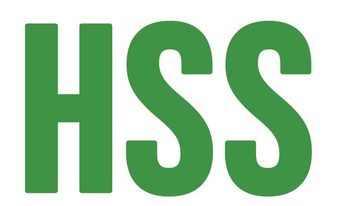Plants require a combination of air and moisture - light expanded clay aggregate balls provide both in abundance. The substrate is perfect for regular houseplant cultivation and certain hydroponic systems.
What is LECA?
LECA (light expanded clay aggregate), also called clay pellets, hydro balls, aqua clay balls, and clay balls, are formed by heating and tumbling clay within the confines of a rotary kiln to form lightweight balls.
The clay balls are porous, so they quickly soak up water and air to meet the needs of plants. Also, LECA acts as a sturdy base to hold the plant’s roots in place and provide support to the stem.
Growing Plants in LECA
LECA holds four times the ball’s weight in water. The medium is reusable, eco-friendly, and odorless. It works well as a soil replacement or when used in an ebb and flow hydroponic system.
Advantages and Disadvantages of LECA
As with any grow medium, there are advantages and disadvantages.
Below are the advantages of LECA:
Correct Watering Every Time
LECA helps you provide the correct amount of water for your plants. The plant's roots will readily absorb the water from the clay balls. The LECA quickly absorbs water and starts to expand.
Each ball holds the water for an extended time, slowly releasing it over time as the plant requires. You don’t have to worry about the plant quickly drying out or becoming overly water-logged when you use clay pellets.
Water Less Frequently
Do you travel often? Do you often forget to water your houseplants? If you answered, “yes” to either question then you’ll quickly fall in love with LECA. Your plants can go an extended time period between waterings using the clay balls.
Pest Reduction
Aphids and fungus gnats thrive in water-logged soil. Luckily, living organisms cannot survive in LECA. You’ll never have to deal with fungus gnats or root rot.
Reduced Storage Space Requirements
Potting soil takes up a lot of room. If you live in a flat or apartment, then you probably don’t have anywhere to keep bags of soil. LECA takes up extraordinarily little room. It is also usable for all types of houseplants.
Reduced Mess
Soil is messy and dirty. Luckily, LECA is exceptionally clean. You don’t have to worry about spilling the soil when watering.
Reusable
LECA is reusable. All you have to do is wash the clay balls thoroughly before repotting.
Below are the disadvantages of LECA:
Costly
LECA is not cheap. In fact, it can often cost three to four times the cost of soil. Although the initial cost is high, you won’t have to replace the pellets like you do with soil.
Nutrient Deficient
Clay pellets contain no nutrients. You’ll need to use a liquid nutrient solution, such as the formulas sold by Humboldts Secret Supplies.
PH Monitors
You’ll need to invest in a pH monitor so you can regularly check the quality of water and nutrients when using LECA.
Conclusion
Many consider LECA an ideal grow medium. It looks clean and your plants will thrive. The only thing you’ll need to add to your gardening arsenal is a liquid fertilizer. Contact Humboldts Secret Supplies to learn about our many nutrient solutions.
